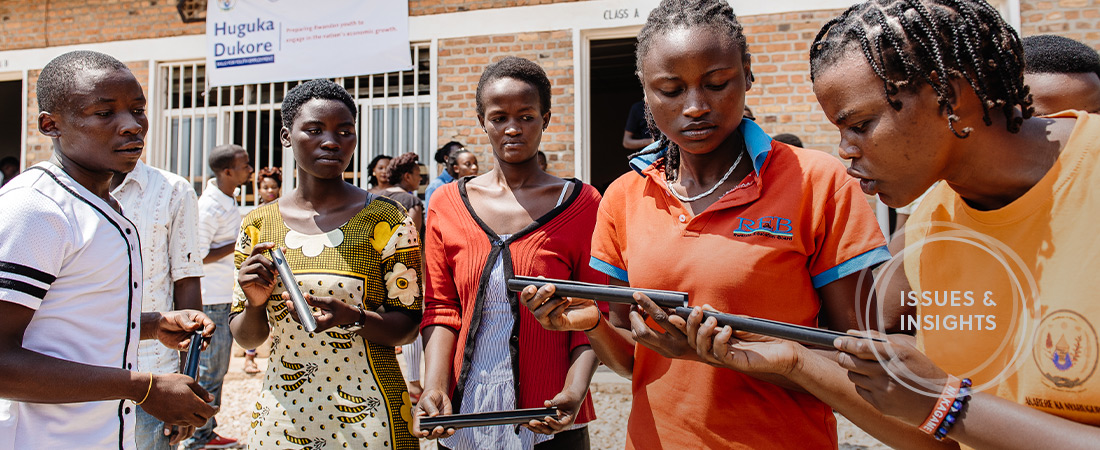On the Path to Self-Reliance

Since 2009, EDC has been working with the Rwandan government and partners in Rwanda to help young people gain market-relevant employment skills. A primary focus of that work has been helping youth develop soft skills and workplace attitudes, such personal goals, time management, problem-solving, teamwork conflict resolution, and customer care. That work continues today with the USAID-funded Huguka Dukore Akazi Kanoze (HDAK) program.
Steve Kamanzi currently leads EDC’s workforce development efforts in Rwanda. In this interview, he discusses why Rwanda’s government and employers are so interested in prioritizing soft skills.
Q. Why is it so important for young people to learn soft skills?
Kamanzi: Rwanda aspires to become a middle-income country. It sees investment in human capital and employment promotion as essential to achieving this vision. It also means developing skilled and patriotic citizens. Soft skills are essential to that. For example, one of the economic sectors where we have placed young people into jobs is construction. Youth usually join that industry as entry level laborers, and there are often opportunities for them to become supervisors if they succeed. But employers in this sector, like in any other sector, realize that gaps in soft skills hinder youth from succeeding in the workplace. They need those core problem-solving, teamwork, and time management skills—especially if they are going to supervise others.
Hospitality is another sector where soft skills are critical, especially communication in the workplace. Youth who go through our program are appreciated for their high level of communication when they interact with their customers, colleagues, and supervisors. It’s good for business.
Q. Why is there such a gap between the skills students have and the skills employers need?
Kamanzi: The formal education system in Rwanda doesn’t provide those skills. Young people can graduate from university without knowing how to write a CV, how to sit for an interview, or how to communicate in a workplace. They aren’t taught those skills. Their education is more academic and isn’t necessarily geared towards preparing them for the workplace.
Q. Do employers agree that soft skills are an area of need?
Kamanzi: Yes. We did a local labor market assessment in order to learn how EDC could design something that really met their needs. And from the assessment, it was clear that even if youth had hard skills, like carpentry or construction, they lacked some of the essential skills that made them successful at work. Things like how to have a positive attitude, how to conduct yourself at work, how to problem solve, how to provide good customer service to the client, how to work within a team. So, it was a combination of reasons why we wanted to highlight soft skills.
Q. What have you heard from employers? Is this approach working?
Kamanzi: Employers have told us that there’s a huge difference between youth who have gone through our program and youth who have not. This comes from companies, managers, and businesses who work with our youth. They want more HDAK youth to come work for them. They are well-prepared, they have the right attitude, they follow instructions. Even if they don’t have all the necessary hard skills, they are easy to train on the job.
Q. What else do young people take away from being part of workforce programs like Huguka Dukore Akazi Kanoze?
Kamanzi: I think self-determination and resiliency are big lessons. We emphasize self-awareness, setting personal goals. Where do I want to go in life? What do I want to achieve? What kind of employment pathway do I want to follow? And then we help them identify existing market opportunities using local market data, and provide support through a networked approach. All youth have a chance to acquire work exposure and experience through work-based learning, which is generally a requirement from employers. That approach really puts them on the path to success.
Q. As you consider the past 10 years of workforce development in Rwanda, what difference has your work made?
Kamanzi: In terms of horizontal scale, our programs cover 25 out of 30 districts in Rwanda. And with institutionalization of soft skills in formal education now, we are talking about hundreds of thousands of youth reached by the programs. That’s a huge impact!